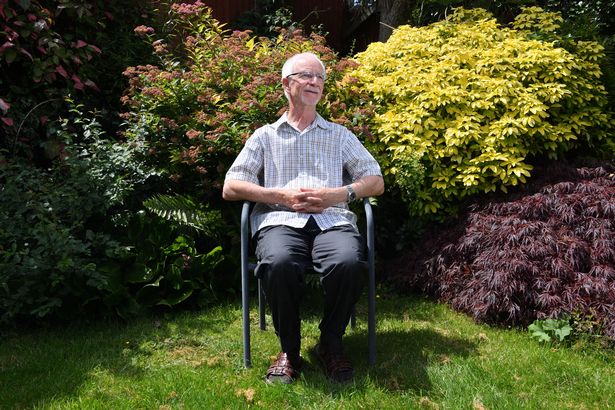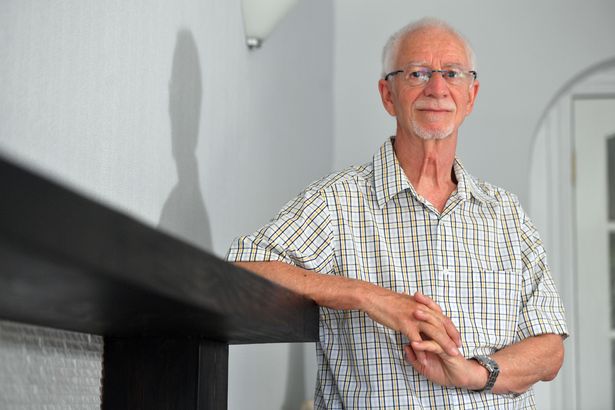For most of us, cryonics sounds like something straight out of science fiction. It has a futuristic outlook and the whole process seems to be expensive and therefore aimed at the super-rich and famous. However, Mike Carter, a retired engineer in Wales who has signed up for one such service, states that it is not. On the contrary, some of the people on the list are not even “comfortably off” according to Carter.
73-year-old Carter has been a member of Cryonics UK for the past 10 years or so. A registered charity since 1991, Cryonics UK has more than 50 members from all vocations, ages, and walks of life, and meets up four times a year in Yorkshire for refresher training and to prepare for the cryopreservation of those who are terminally ill.
“I just googled cryogenics and then eventually came across the term cryonics. Then I found Cryonics UK,”
While speaking about his own sign-up experience, Carter stated,
“I went to a couple of meetings, got in touch with one of the cryonics providers in the US, and eventually I thought: ‘I don’t think it will work but what have I got to lose?’ ”
The retired engineer, who lives in Cardiff, is not just a name on the subscribers’ list; he has also participated in the final preparation of three of the 15 cases that Cryonics UK has handled so far. The charity has a detailed minute-by-minute, hour-by-hour guidebook detailing the process needed to cool a body down after death and fill it with a type of antifreeze to stop crystals from forming.
Explaining the process, Carter said,
“The big thing is you want to get someone to pronounce or confirm death who is acceptable to the doctor. Every single case it changes. In the UK, a close relative can confirm death. Once we feel confident that they are dead we will put them on the chest compression machine and lung ventilator and start cooling them down.[Then] we can start to put the medications in to stabilize, to stop blood clotting, stop capillaries from collapsing.”

The former engineer has been involved with three Cryonics UK cases (Source: WalesOnline)
Cryonics UK currently does not have any qualified staff on its list, so it relies on embalmers in local mortuaries to complete the next step. The stable body is rushed to a local mortuary where an embalmer cuts the veins and arteries in the neck and inserts cannulas which allows the group of volunteers to perfuse the head with a specialist antifreeze.
“The antifreeze penetrates all the cells, all the blood vessels, everything, so we can freeze the person below freezing point. We actually put them in a specially insulated box and put dry ice around. We take the body down then to -60C,-65C and that takes about three days,” Carter explained. After this, the body can be shifted to the storage facility of one’s choice.
There are a range of storage options available with prices ranging from $50,000 to $200,000 for full-body storage. One can even opt for the head-only storage option priced at $90,000. There are also other providers who charge between $28,000 – $32,000, but this does not include the cost of preparing, freezing, and transporting the body which is billed separately, along with late membership fees, if you are currently not a monthly subscriber.
“It costs quite a bit of money but people take it out with life insurance so you are talking about something that is affordable for quite a lot of people,” according to Carter.
Tim Gibson, another Cryonics UK member, began preparing for his cryopreservation when he was in college, and then later switched his insurance policy to £100 per month to support this dream following death.
Like insurance, one can even swap cryonic storage facilities in line with one’s budget or services offered by the facility. A word of warning though, getting a spot at a facility involves a ton of paperwork and requires one to be extremely organized, including making all of the arrangements to get to the facility of choice, otherwise it is like “buying a plane ticket but not having the money to get to the airport,” as Tim puts it.
Another thing to deal with is the place to carry out these preservation procedures. Care homes generally offer the privacy and facilities needed, however hospitals can react differently.
“In some hospitals, you can come and sit in the waiting room and bring the kit in. Others say they will bring people to the back door – it just depends,” Carter says.
“They would prefer you not [to prepare the body] there because of their insurance risk.”
Finally, there is the procedure of preservation to contend with. Unlike hospitals, where personnel are trained over years, the team at Cryonics UK largely consists of volunteers who have conducted very few procedures individually and do not have a database of scenarios.
“One of the insecurities that hospitals have is that we don’t have all the safeguards and the fact we don’t have a plan for in case this or that happens,”
However, Carter adds, “I was told once one of the best volunteers was not a medic but a professional golfer because she was able to make decisions, work independently, and just do it. You come up with a solution.”

Mike says he ‘doesn’t care’ if a funeral is held for him when he dies (Source: WalesOnline)
There is also the larger question of telling your nearest and dearest about your decision to be cryopreserved. Some people prefer to stay in the “cryonics closet”, as Carter calls it, and do not reveal their wishes to family members. Gibson’s father, for example, considers it “immoral and against nature” but his daughter considers it “cool.” Gibson himself compares it to organ transplantation technology that looked “monstrous” 30-40 years ago but is now a regular procedure.
While all the above preparations can be handled, Carter still hasn’t figured out how he will fund his “return”. Current laws in the UK do not allow you to leave money in a trust indefinitely, no longer than 125 years. Would that be sufficient time for people to be “woken” from their cryogenic sleep? Only time will tell.
The original article was written by Anna Lewis for WalesOnline (Source: WalesOnline)












